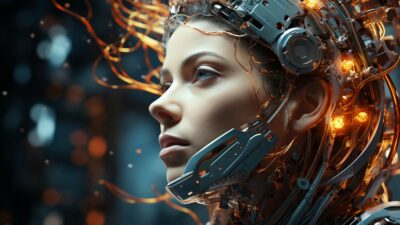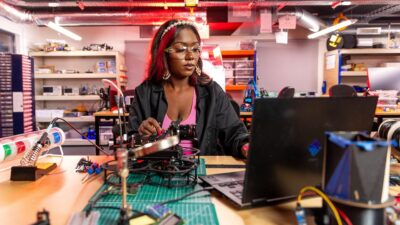In recent years, artificial intelligence (AI) has emerged as a transformative force across various sectors, with the potential to address critical global challenges. From climate change to healthcare disparities and poverty alleviation, AI technology is being harnessed to create innovative solutions that not only enhance efficiency but also foster sustainability and inclusivity. This article delves into several noteworthy applications of AI that exemplify its positive impact on society.
1. Climate Change Mitigation
AI is instrumental in combating climate change, primarily through optimizing energy consumption and enhancing predictive models. For instance, AI algorithms analyze vast datasets to improve energy efficiency in buildings and cities. These systems can predict energy usage patterns, allowing for smarter grid management that reduces waste and integrates renewable energy sources seamlessly.
Moreover, AI-driven prediction models help climate scientists simulate future scenarios, allowing policymakers to devise effective strategies for resilience. Initiatives like IBM’s Green Horizon project utilize AI to monitor air quality in real-time, enabling cities to better understand pollution sources and implement targeted interventions.
2. Healthcare Advancement
AI’s application in healthcare is revolutionizing disease detection, patient care, and treatment methodologies. Machine learning algorithms are being used to analyze medical data at unprecedented speeds, improving diagnostic accuracy. For example, AI systems can identify early signs of diseases such as cancer in radiology images far more quickly than human doctors, thereby facilitating early intervention.
Furthermore, AI is instrumental in drug discovery processes. Companies are leveraging AI to expedite the identification of potential compounds, significantly reducing the time and cost associated with bringing new medications to market. During the COVID-19 pandemic, AI played a crucial role in vaccine development by simulating how different chemicals would interact with the virus, hastening the creation of effective vaccines.
3. Food Security
The global population is expected to reach nearly 10 billion by 2050, intensifying the need for sustainable agricultural practices to ensure food security. AI technologies are being utilized to optimize crop yields and resource management. Precision agriculture, enhanced by AI, uses data from sensors and drones to monitor crop health, soil conditions, and weather patterns, facilitating timely interventions.
AI-driven analytics help farmers make informed decisions regarding planting schedules, irrigation needs, and pest control, ultimately promoting sustainable practices that conserve resources and minimize environmental impact. For instance, Microsoft’s AI for Earth initiative aims to empower organizations with AI tools that can analyze agricultural data and create actionable insights for better food production strategies.
4. Education Access and Learning
Education is a critical determinant of social and economic development, yet millions still lack access to quality educational resources. AI can bridge this gap by personalizing learning experiences and making education more accessible. Intelligent tutoring systems powered by AI adapt to individual students’ learning styles, offering personalized feedback and tailoring curricula to their needs.
Moreover, AI platforms like Coursera and Khan Academy are democratizing education by providing learners across the globe with access to high-quality courses from reputable institutions, often at little to no cost. Machine learning algorithms analyze student performance data to enhance course design and optimize learning pathways, ensuring that educational content is relevant and effective.
5. Disaster Response and Humanitarian Aid
AI is increasingly being employed to improve disaster response and humanitarian aid efforts. Machine learning tools can analyze social media posts, satellite imagery, and sensor data to assess the needs of affected populations following natural disasters. This data-driven approach enables organizations to allocate resources more effectively and develop timely responses.
For example, during recent hurricanes, AI models have been used to predict flooding, helping communities to evacuate safely and prepare for potential impacts. Similarly, the World Food Programme uses AI to identify households at risk of food insecurity, allowing for targeted interventions that can save lives and alleviate suffering.
Conclusion
The innovations characterized under the banner of "AI for Good" illustrate the immense potential of artificial intelligence to address some of humanity’s most pressing challenges. By leveraging technology with a focus on ethical considerations and societal benefit, organizations can harness AI to create inclusive, sustainable solutions that promote a better future for all. As we continue to navigate the complexities of a rapidly changing world, fostering collaboration between technologists, policymakers, and local communities will be essential to ensure that AI serves as a force for positive change.



